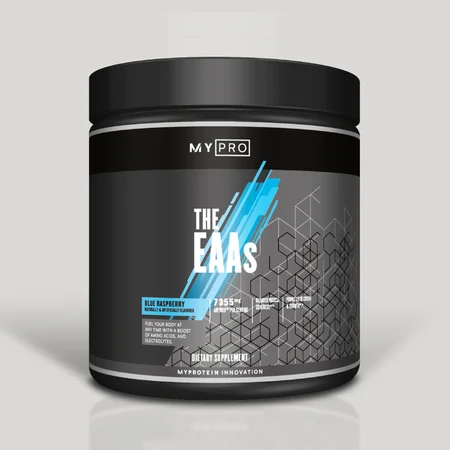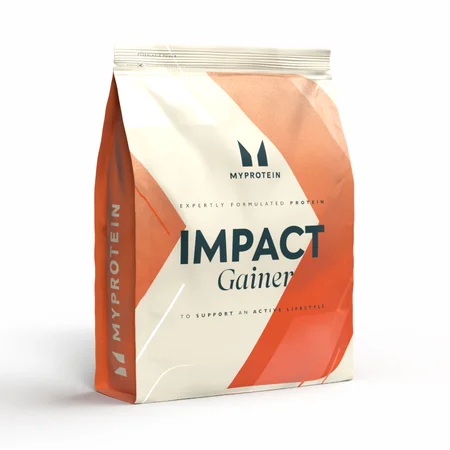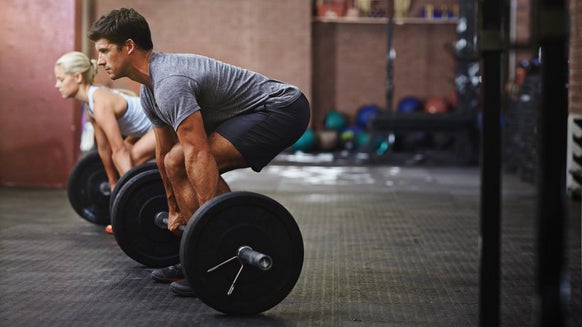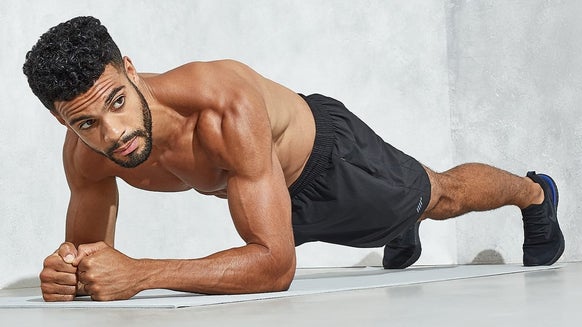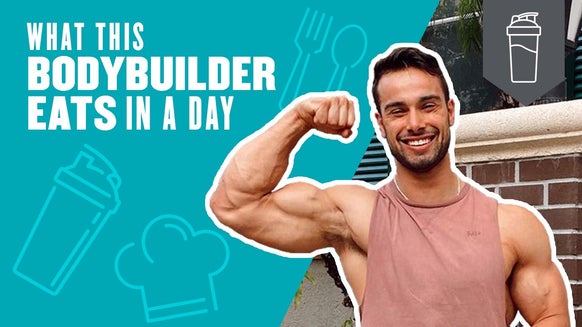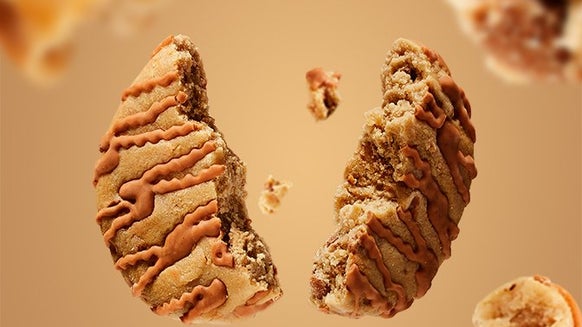
We're here to give you a helping hand so you can put on mass and reach your muscle building goals this year.
Muscle Building Advice
Here’s some advice to get you started on your journey to build up muscle and strength, covering exercise, nutrition, and supplementation. We’re sure you’ll be smashing your goals in no time.
1. Whey Protein Alternative For Calorie-Conscious Muscle Building
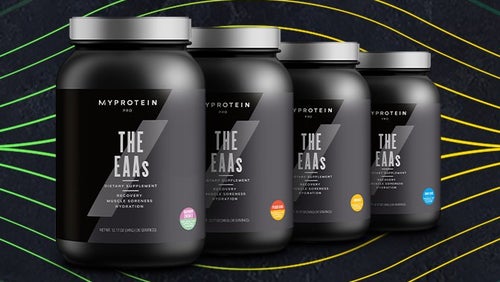
Everything You Should Know About EAAs – Are They Superior to BCAAs?
Here, we see how BCAAs stack up to EAAs....
2. Best Training Split For Building Muscle
Want more information on how to plan your workouts? Our PT breaks down the best way to split up your training, to achieve the results you want.

Best Training Split For Building Muscle | Expert Reveals All
Are you a "bro" split or a push, pull, legs?...
3. Muscle-Building Made Easy – 4 Protein-Packed Dinners
Our ambassador provides some delicious recipe inspo — to help you meet your macros and fuel your goal.
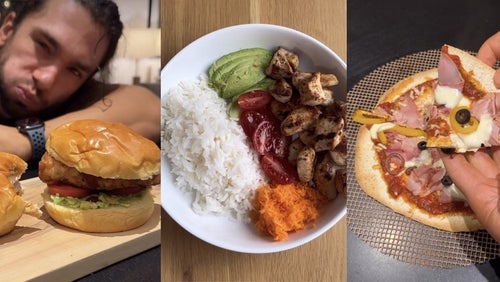
4 High-Protein Dinner Recipes To Help With Muscle Building
Switch up your meals this January....
4. You Can Build Muscle With No Equipment
If you don’t have the time or money to spend on the gym, there are other ways to build muscle. Myprotein PT Kay Johnson runs through some options for intense home workouts that will provide the pump.
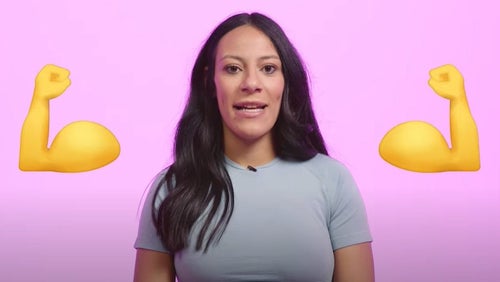
You Can Build Muscle With No Equipment | PT Explains
You've just got to focus on 'the principles'....
5. Build Muscle Supplement Guide | What To Take To Build Muscle
Knowing when and what supplements to take is really important when working towards a specific goal. Our nutritionist shares which supplements are best for muscle building.
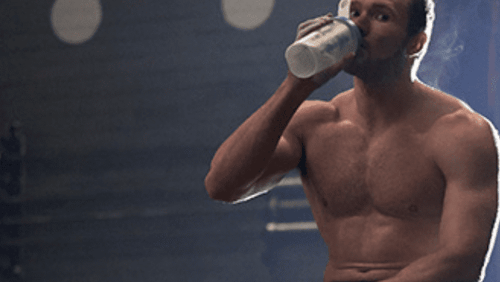
Build Muscle Supplements Guide
Building muscle just got easier - pick your favorite supplements to achieve your...
6. 14 Protein-Packed Foods To Meet Your Macros
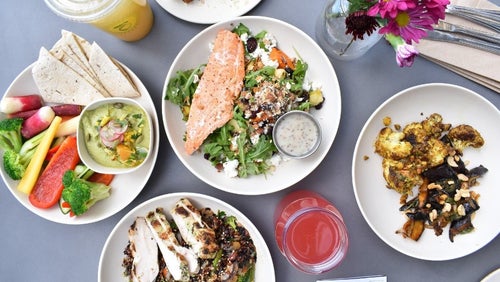
14 Foods Surprisingly High In Protein
The underdogs of the protein world have entered the chat......
7. How To Take Creatine | What Is The Best Way?
Creatine is known as an important supplement for those wanting to build muscle. Find out from our nutritionist exactly what creatine does and how best to take it.

What Is Creatine? | Benefits, Dosage, & Side Effects
Cutting through the noise to provide you with the facts......
8. Push Pull Legs Routine | The Best Mass-Building Workout Split
This push-pull-legs routine is guaranteed to get your muscles pumping. With beginner and advanced versions of each exercise, you can make it as hard as you want.
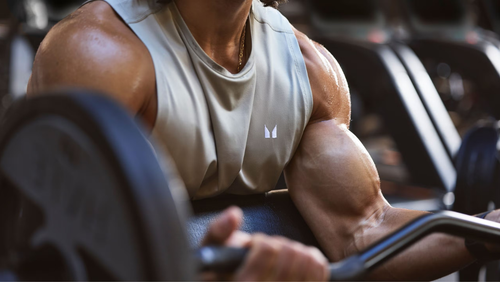
Master the Push, Pull, Legs Workout Split for Muscle Growth
The most efficient workout split for building mass....
FAQS
What should I eat for muscle gain?
If you want to put on muscle, you'll need to be in a healthy calorie surplus. One way of achieving this without putting on too much body fat is to increase your maintenance calories by 5-10%.
You'll also need to eat plenty of high-quality protein, as it contains the essential amino acids needed for muscle growth. Aim for 1.6 to 2.2 grams of protein per kilogram of body weight per day, and distribute it evenly across your meals.
What foods are bad for muscle growth?
There are few "bad" foods when it comes to putting on muscle, especially if your aim is bulking. But it's probably best to avoid super-calorific processed foods like biscuits, cakes, chips, and chocolate, and instead try to consume foods high in monosaturated and polysaturated fats, especially if you want to gain muscle without putting on too much body fat.
While not technically a food, alcohol is probably the worst thing you can consume if you're trying to gain muscle. It brings no benefits for health and disrupts sleep, mood, recovery, and, most importantly, exercise performance. So avoid alcohol altogether if you can, or at least consume it only in moderation.
What is the best meal plan to gain muscle?
The best meal plan for gaining muscle is one that you can consistently follow and allows you to eat in a calorie surplus while getting sufficient protein and fueling your workouts and recovery. While there’s no one-size-fits-all meal plan, there are some basic nutrition principles that you can use as a foundation for creating your own plan.
Also, consider the timing of your meals and snacks around your workouts to maximize their effectiveness.
A general guide for what to include on your plate is a palm-sized portion of protein, a palm-sized portion of fruit or vegetables, a palm-sized portion of carbohydrates (preferably whole grains but you can also include starches closer to your training), and a thumb-sized serving of fat. A bowl of oatmeal with a scoop of protein mixed in, a serving of blueberries, and a tablespoon of peanut butter would follow this guide.
To fuel your performance and recovery, it's important to consume carbohydrates within 60 minutes of your training and protein within 60 minutes after. A simple way to do this is by eating a banana before your workout and a protein shake after. You can also opt for a small handful of dried fruit, coconut chips, or a bagel.
Do I need to eat more to gain muscle?
If you’re new to the gym or returning after a long break, you may be able to gain lean muscle while maintaining your current calorie intake or even while in a slight calorie deficit.
This tends to wear off after 6-12 months of consistent training and is known as the "newbie gains" period. After this point, it becomes more difficult to gain lean muscle without sufficient nutrition, so it’s important to focus on eating in a calorie surplus and getting the necessary nutrients to support muscle recovery and further growth.
Do you have to eat healthy to gain muscle?
It’s possible to gain muscle through “dirty bulking”, a term used to describe the practice of consuming large amounts of high-calorie, low-nutrient foods in order to quickly gain as much size as possible. This approach is not very healthy and can potentially do more harm than good in the long term.
Instead of rushing to achieve a certain appearance, focus on establishing healthy behaviors and knowledge that will benefit you for the rest of your life. Gaining muscle should be a long-term goal, not a short-term sprint. By fueling your body with the right nutrients, you can gain muscle without harming your overall health.
So no, you don’t have to eat “healthy” to gain muscle, but it’s better if you do.
How important is nutrition for building muscle?
Nutrition provides the building blocks and energy to support muscle growth. While resistance or weight training serves as a stimulus for muscle growth, it’s important to also ensure that proper nutrition is included in your routine to fuel the recovery process. Without adequate nutrition, your muscle growth may soon plateau.
Take Home Message
These helpful tips and tricks should help you be well on your way to meeting your muscle building goals. From nutrition and supplements to fitness and exercises, we’ve got you covered.
Want more tips?
READ THESE NEXT:

Tips for Taking on Dry January: Student Edition
These tips will help any college kid tackle Dry January....


